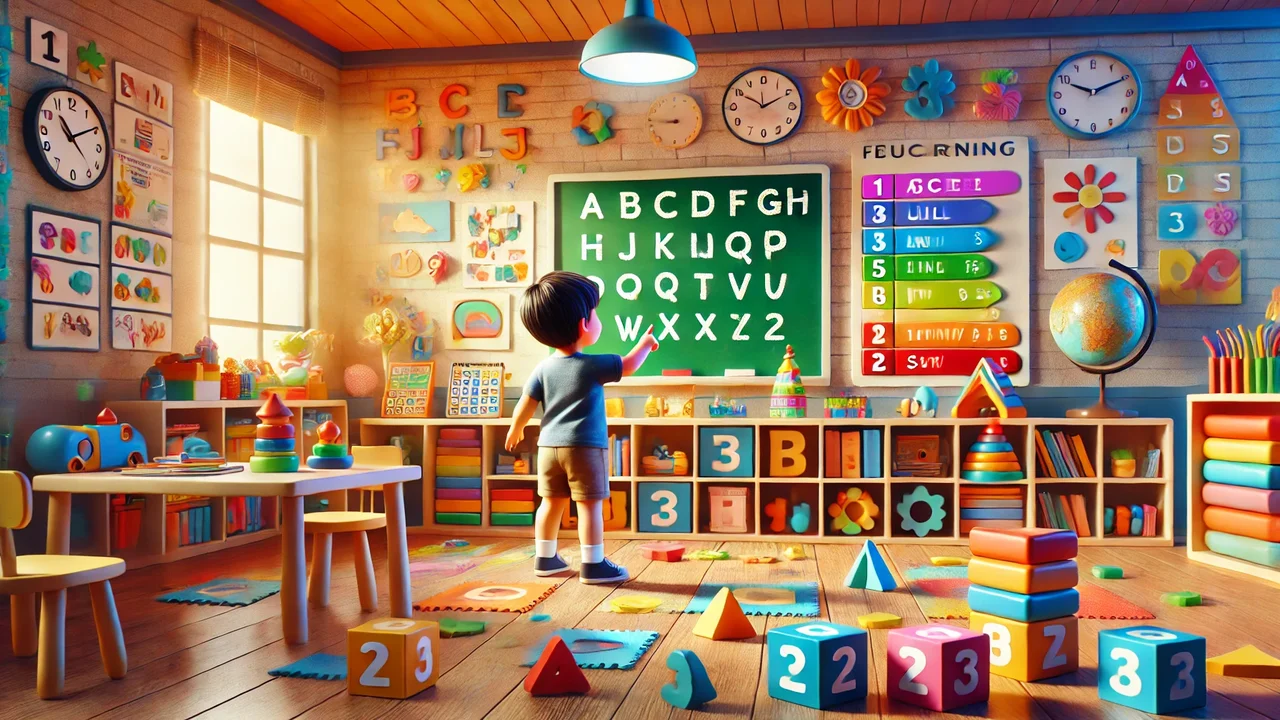As parents, preparing your child for school can feel overwhelming. However, laying a solid foundation before their first day can significantly influence their future success in the classroom and beyond. Children who enter school with essential skills are better equipped to adapt to new environments, interact positively with peers, and thrive academically. Here’s a guide to the crucial areas of learning every child should focus on before starting school.
1. Basic Literacy Skills
Recognizing Letters and Sounds
One of the first steps in literacy development is familiarizing your child with the alphabet. Encourage them to recognize both uppercase and lowercase letters, as well as the sounds associated with each letter. You can make learning fun by using songs, games, and flashcards.
Listening Skills
Listening is an often overlooked aspect of literacy. Encourage your child to listen to stories read aloud, which helps them understand the structure of language, improve vocabulary, and develop comprehension skills. Ask them questions about the story to enhance their understanding and critical thinking.
2. Early Math Skills
Counting and Number Recognition
Before starting school, children should be able to count from one to ten and recognize numbers. Use everyday opportunities to practice counting, such as counting toys, snacks, or steps. You can also introduce them to simple math concepts like addition and subtraction through playful activities.
Understanding Patterns and Shapes
Introduce your child to shapes and patterns by using blocks, puzzles, and everyday objects. Recognizing shapes helps children develop spatial awareness, which is vital for math and science concepts later on. Encourage them to create patterns using colors or shapes, reinforcing their understanding of sequences.
3. Social and Emotional Skills
Sharing and Cooperation
Social skills are just as important as academic ones. Teach your child the value of sharing and taking turns through playdates or group activities. Role-playing different scenarios can also help them understand how to interact positively with others.
Expressing Emotions
Encourage your child to express their feelings and understand the emotions of others. Discussing various emotions and how they might feel in different situations prepares them for social interactions. Books and stories can be great tools for exploring feelings in a relatable way.
4. Fine and Gross Motor Skills
Fine Motor Skills
Fine motor skills involve the use of small muscles in the hands and fingers. Activities like coloring, drawing, and cutting with safety scissors help develop these skills. Encourage your child to practice writing their name, tracing letters, or using playdough to strengthen hand muscles.
Gross Motor Skills
Gross motor skills involve larger muscle groups and are essential for physical activities. Encourage your child to run, jump, climb, and engage in other forms of physical play. Outdoor play is an excellent opportunity for them to develop balance, coordination, and strength, which will be beneficial in school activities like sports and group games.
5. Independence and Self-Care
Basic Self-Care Skills
Before entering school, your child should be able to perform basic self-care tasks like dressing, using the restroom independently, and washing their hands. Practicing these skills regularly helps children feel confident and prepared for school routines.
Following Directions
Teach your child how to follow simple instructions. Start with two-step directions, like “please pick up your toys and put them in the box.” This skill is crucial in the classroom, where teachers will give multiple instructions throughout the day.
6. Routines and Structure
Establishing Routines
Children thrive on routine. Establishing a daily schedule that includes time for learning, play, meals, and bedtime helps children understand the importance of structure. This routine will ease their transition into the school environment, where they will encounter a structured day.
Understanding Time Concepts
Teach your child basic concepts of time, such as morning, afternoon, and evening, and help them understand the sequence of daily activities. Using visual schedules or timers can reinforce these concepts, helping your child become more aware of the passing of time.
7. Love for Learning
Fostering Curiosity
Instilling a love for learning is perhaps the most important gift you can give your child. Encourage their natural curiosity by exploring their interests. Engage in conversations, ask open-ended questions, and provide opportunities for hands-on exploration. Visiting museums, nature centers, or local libraries can also inspire a lifelong love of learning.
In Conclusion
Getting your child ready for preschool in Salt Lake City is an exciting journey. By emphasizing foundational skills like literacy, math, social and emotional development, motor skills, independence, routines, and a love for learning, you’ll pave the way for your child’s success. Keep in mind that the aim isn’t to mold a perfect student but to nurture a well-rounded individual who feels confident and prepared to face the challenges of school. With your support and encouragement, your child will begin their educational adventure equipped with the tools necessary to thrive.

Stephen Norman is a skilled and accomplished writer known for his versatility across numerous niches. He consistently delivers insightful and engaging content in various fields. Stephen’s extensive experience and profound expertise make him a highly sought-after author in the digital writing sphere.











